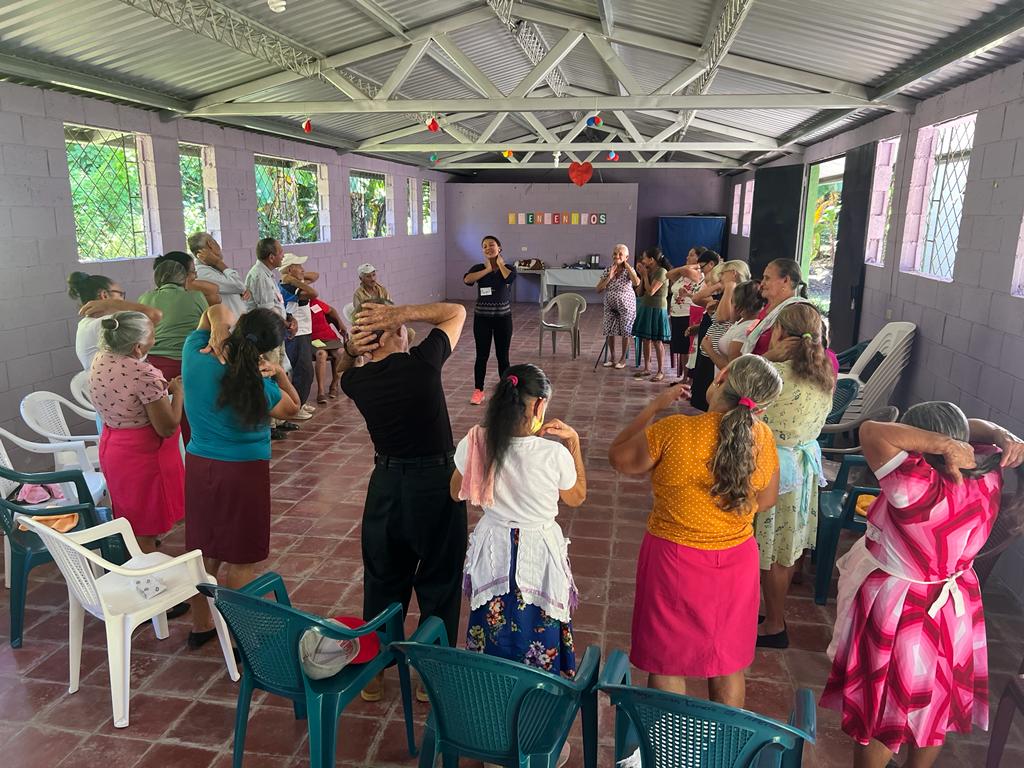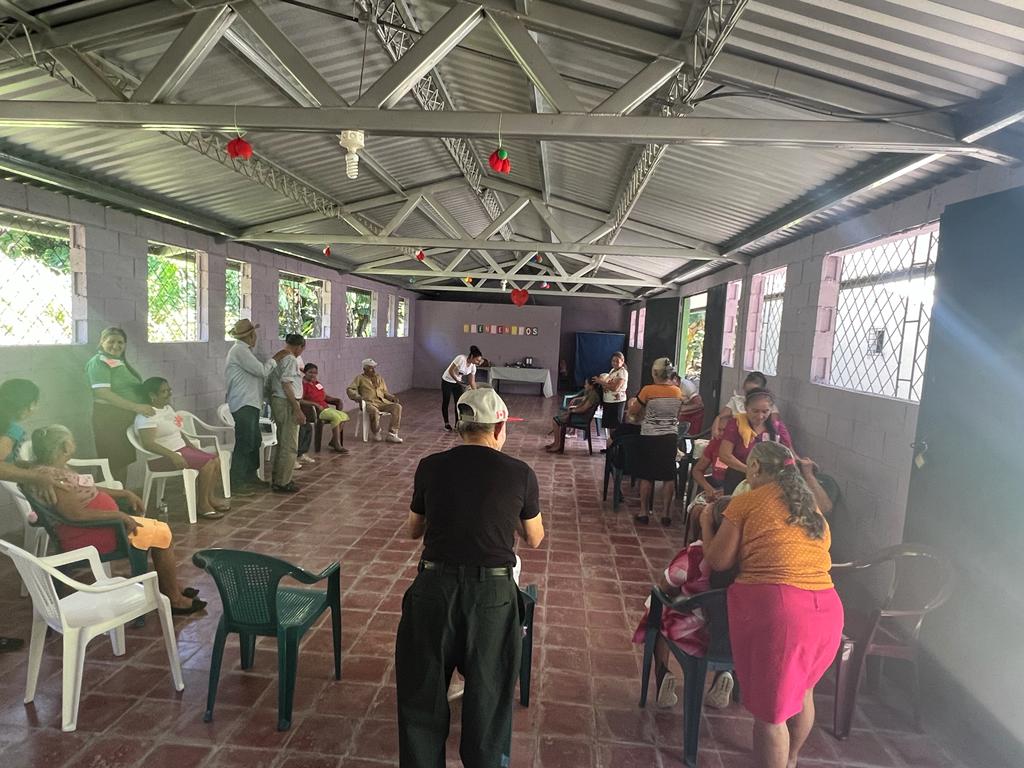The Institute of Clinical Bioethics was awarded the Aschenbrenner Grant for the El Salvador Palliative Care/ Hospice Program: Casa Hogar.
Background
Chalatenango is a town, a municipality, and the capital of the Department of Chalatenango located in the northern part of El Salvador. The territorial extension is approximately 131.05 km2 of rural land and 75 km2 of urban land. Arcatao is a town located in a small hollow between several low hills on the border of the Republic of Honduras, with a population of about 3,000 people. During the El Salvadoran Civil War, Arcatao was greatly affected and lost many of its young adults to the war. There is limited healthcare available to the population of Arcatao due to its rural nature, particularly for the elderly individuals. Many times, cases are referred to Chalatenango, at least an hour away.
It has been made apparent that many communities in Latin American countries lack or have inadequate end of life care. Specifically in Arcatao, we have found that health centers in the areas around Arcatao often neglect the needs of the community. The Institute of Clinical Bioethics has a strong, long standing relationship with the local Parish, San Bartolomé Apostól, as well as Saint Joseph’s Parish in Seattle, Washington, who is affiliated with the community. As a Jesuit University, SJU also has a connection with the Jesuit University of Central America in San Salvador.
Project
The main goal of this initiative is to implement a palliative care and hospice program in the community of Arcatao, El Salvador, and one which could then serve as a paradigm for palliative and hospice care in other developing countries.
We have successfully established a facility in Arcatao, Casa Hogar, that currently services the elderly individuals in the community on a daily basis. There is a designated team to provide care, including a nurse, a social worker, a pastoral care worker, and administrators. Our SJU team meets with the ES team periodically to receive updates about Casa Hogar and determine the next steps of the initiative in order to best serve the community. It is important to note that the aspects of this program are developed to meet the needs of this community in a developing country due to the difference in financial, educational, and health related resources available. It aims to help the community take care of one another, as well as provide education in terms of end of life care.
The Casa Hogar initiative is rooted in the Jesuit ideas of cura personalis and solidarity with the hopes of it radiating from one community to another. Through this, we incorporate many different aspects of palliative and hospice care.
Effective Educational Programs for patients and their family: To help patients and their families better understand and cope with their illness.
Supportive Care: Incorporates pain and symptom management to assist with comfort care at the end of life.
Hope, Emotional, and Spiritual Support: To help manage the stress that can weigh on a patient and their loved ones.
Communication Guidance: Communication between all involved in the care of the patient will allow everyone to be fully aware of the current and future states of care of the patient. Complete transparency between the parties involved will help build trust between the team and the patients.
Continuity of Care: The team will be cooperatively involved in ongoing health care management toward the shared goal of high quality, cost-effective medical care.
Caring for the Caregiver: Caregivers will also be given the support they need when it comes to the care of a loved one or friend.
Transition into Hospice: At some point, hospice care is appropriate when treatment can no longer help and the patient isexpected to live 6 months or less. The patient, their loved ones, and the health professional decide when hospice care should begin.
Bereavement Counseling: Counseling offered to individuals who have suffered a loss, typically the death of a loved one, in order to help the bereaved through the process of mourning and recovery. This may also be offered before death to help survivors cope with terminal illness and to healthcare staff after the death of a senior for whom they have worked.

One of the foundational values of any hospice and palliative care program is that no one should be devoid of pain and symptom management at the end of life due to financial restraints. Each person deserves dignity and respect in terms of end of life care. There are many resources needed by the team in El Salvador in order to effectively and continually implement this plan. One of our main goals is to create a program that is sustainable to support the community in the future. Through this grant, we are receiving funds for a hospital bed and a portable toilet to be used in the facility to better serve the individuals at Casa Hogar.

